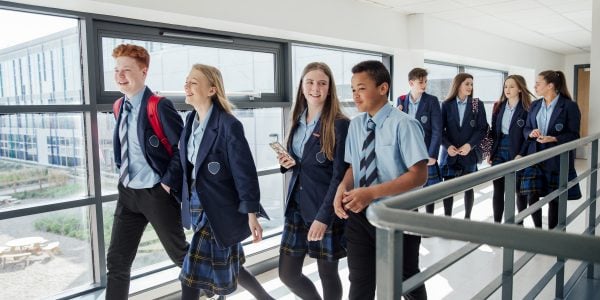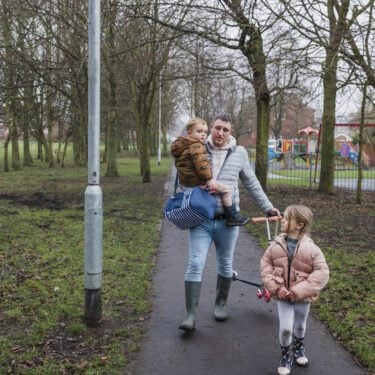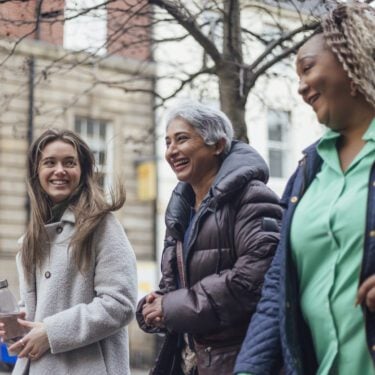
17/01/23
5 min read
The Nuffield Foundation and Versus Arthritis announce £1.94m of funding for new research to improve work and well-being for people with musculoskeletal conditions.
The Nuffield Foundation and Versus Arthritis are committing £1.94 million of funding to six new research projects that aim to improve the well-being and working lives of people with musculoskeletal (MSK) conditions.
More than 20 million people, around a third of the UK population, have an MSK condition such as osteoarthritis, rheumatoid and psoriatic arthritis, back pain, fibromyalgia and rarer conditions such as lupus. They are the greatest cause of pain and disability in the UK, affecting people’s ability to work, care for a family, and live independently.
MSK conditions also have a profound impact on society and the economy, leading to 28.4 million lost working days a year and accounting for the third largest area of NHS programme spending.
The new research grants are the second round of awards from the Foundation’s Oliver Bird Fund, which is dedicated to improving the lives of people with MSK conditions.
The charity Versus Arthritis, which is contributing £250,000, is calling for more research into addressing MSK health inequalities by striving for better MSK health and care at home, in leisure, at work and in communities under the Living Well ambition in the charity’s research strategy. These projects will deliver against this ambition, as well as the Person-focussed principle of ensuring people with arthritis are active partners in research.
The partnership between Versus Arthritis and the Nuffield Foundation will put lived experience at the heart of the six projects, which are being carried out in five universities. Versus Arthritis’ ‘Research Partners’ – people living with MSK conditions – have been involved in selection of the projects. People living with MSK conditions will advise across the lifetime of the projects, from helping to develop tools and interventions to guiding researchers’ understanding of the needs of underserved communities. This will ensure that the research is highly relevant to real-world needs and issues.
Colin Wilkinson, a Research Partner at Versus Arthritis said:
“It can be difficult to understand the variety and range of ways arthritis affects people in their everyday lives because the 200+ musculoskeletal conditions are all so different, just as we are all different. I may find sitting still for long periods of time excruciating, whereas someone with a different condition might find sitting still very helpful. Without understanding the ways these conditions affect so many aspects of life, we can’t make progress in providing new and better ways to help people to live well with arthritis. We need lots of different solutions, and ways to help people work out what will help them.
“This partnership initiative will go a long way in understanding how the ways needed to live well with arthritis depend upon more than just the NHS.”
About the successful research projects
The projects have a common theme of how MSK conditions impact on people’s ability to live and work well, to inform policy and practice responses.
The PAW Trial: feasibility and acceptability of the Pain-at-Work Toolkit, led by Professor Holly Blake (University of Nottingham, £338k)
Chronic pain is a significant global health problem, representing a high burden to the UK economy. Employers, particularly smaller ones, do not routinely provide education or support for people with chronic pain. The Pain at Work (PAW) Toolkit provides people who self-manage pain at work (including, but not limited to MSK conditions) with information, support and advice.
The aim is to enable them to stay in the workplace, thereby reducing inequalities and improving their quality of life. The research will explore whether the toolkit is acceptable and useful to people with pain, and whether there are benefits for people with pain and employers.
Arthritis, work and well-being: A mixed methods study with policy recommendations, led by Dr Adam Martin and Dr Sarah Kingsbury (University of Leeds, £300k)
This project will explore how stopping or reducing work affects the health, quality of life and well-being of people with arthritis; which groups have the poorest outcomes from such changes; and what kinds of policy interventions are most likely to help. The aim is to create guidance on the best ways to improve well-being, and how to target the groups most likely to benefit.
Remote osteoarthritis peer-mentorship for socioeconomically underserved people, led by Professor Gretl McHugh (University of Leeds, £266k)
Hip and knee osteoarthritis (OA) is a common joint condition in mainly older people. It is more prevalent in those who experience socioeconomic disadvantage and affects them more severely due to poorer general health, reduced access to and uptake of health services, and digital exclusion. This funding will support the applicants to develop and evaluate a remote peer mentorship programme for people experiencing socioeconomic disadvantage.
The findings will inform the development of a future definitive randomized controlled trial to determine clinical and cost-effectiveness of the programme.
The Psychological, Social, and Economic Impact of Musculoskeletal Conditions, led by Professor Andrew Steptoe (University College London, £288k)
This research will use the English Longitudinal Study of Ageing (ELSA) and statistics on social prescriptions for 150,000 patients. The data will highlight challenges facing people with MSK conditions, for example their mental health and ability to work, and explore ‘quality of life’ factors including the impact of family, patterns in racial and ethnic minority groups, and the pandemic.
The research will also study the effects of social prescribing on the mental health and well-being of people with MSK conditions and examine how referrals to social prescribing for MSK conditions vary by age, gender, ethnicity and socioeconomic status. This evidence could inform targeting to improve care for patients.
Juvenile onset rheumatic diseases: Education, vocational readiness and employment, led by Professor Suzanne Verstappen (University of Manchester, £402k)
Juvenile onset rheumatic and musculoskeletal diseases (jRMD) can have a negative impact on the education, career choices, aspirations, employment prospects and well-being of teenagers and young adults. Issues including fatigue and functional disability can lead to non-attendance, non-completion of coursework/ exams and concentration issues at school. This research seeks to better understand these impacts in order to inform the development of evidence-based work experience programmes, support education/career pathways and influence government policies.
The aim is to produce information materials for young people living with jRMD, carers, health professionals, education providers, career services, employers and policymakers.
Extending working lives for people with musculoskeletal conditions, led by Dr Ross Wilkie (University of Keele, £345k)
The UK government wants us to work for longer but some people over 50, including those with MSK conditions, may find this particularly difficult. This project will build on the team’s development of an indicator of ‘Healthy Working Life Expectancy’ (HWLE) – the average number of years a person is expected to be healthy and working after 50.
The aim is to generate a HWLE indicator for people with MSK conditions, for different geographies and job types, then to understand the impact real-world challenges, policies (e.g. the state pension age) and interventions have on the amount of time that people are healthy and working.
“These six research projects align around issues that can make it very challenging for people with MSK conditions to enjoy full and rewarding lives. We are really delighted to be partnering again with Versus Arthritis to fund research that aims to address some of these barriers and find new and better ways to support people with MSK conditions.”Dr Catherine Dennison, lead for the Oliver Bird Fund Programme at the Nuffield Foundation
Dr Sarah Rudkin, Head of Research Strategy and Growth at Versus Arthritis said:
“Many of the issues linked to living with an MSK condition such as the inability to work, strain on mental health, deprivation, or social exclusion, cannot be addressed by medical treatments alone. More research is needed to understand the social, economic, and psychological reasons why people with MSK conditions are more at risk of these issues and, crucially, what can be done to prevent this, so that we can better support people to live well with their condition. These six projects – that will ensure those with lived experience are involved at every stage – will advance our understanding in all these areas and make a real difference for people living with conditions like arthritis”






















































